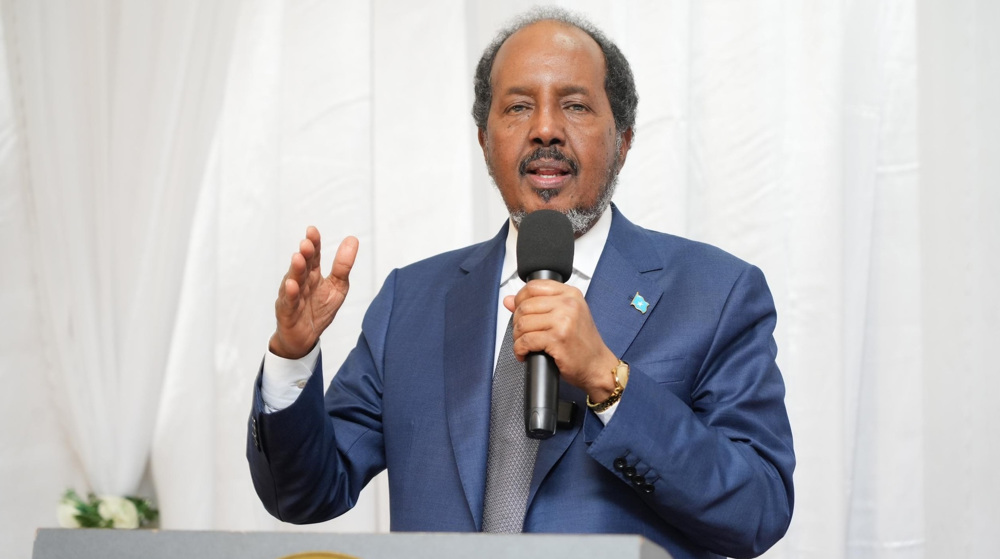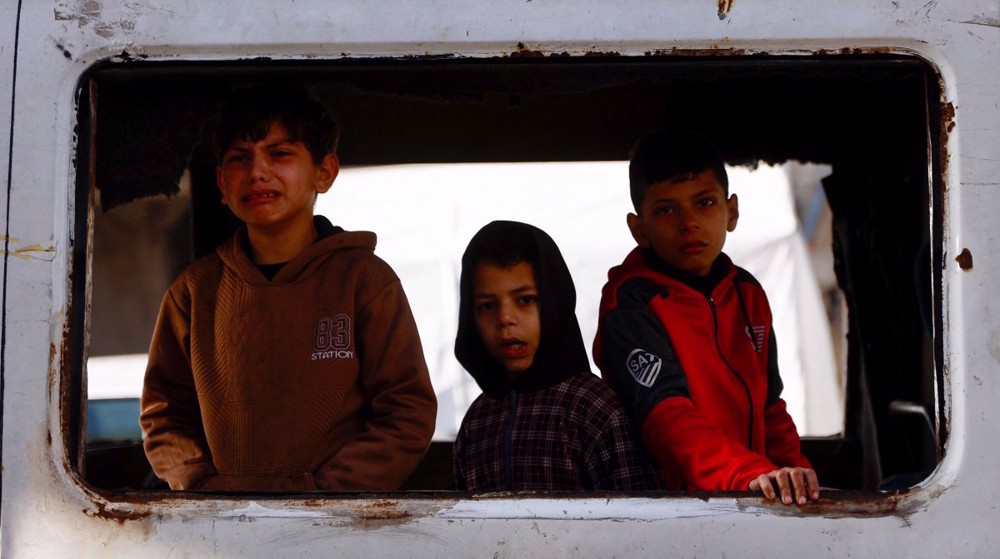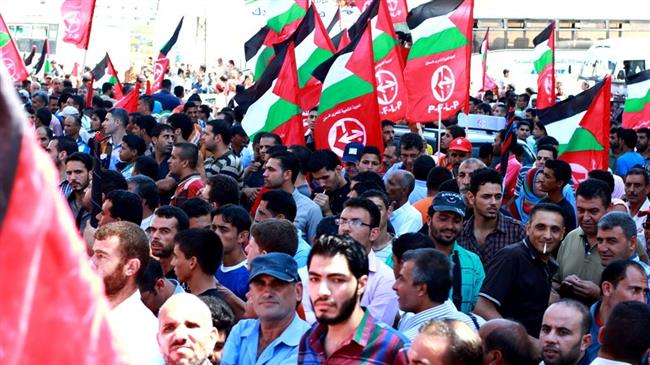Two Palestinian teens killed by Israeli live fire during Gaza border protests
Two Palestinian teenage boys have lost their lives and more than a dozen protesters sustained injuries during clashes between Palestinian protesters and Israeli soldiers stationed on the border between the eastern Gaza Strip and the occupied territories.
The spokesman for the Gaza Ministry of Health, Ashraf al-Qidra, said in a statement that 14-year-old Hassan Iyad Shalabi was fatally shot in the chest during a “Great March of Return” protest east of the city of Khan Yunis, located about 25 kilometers (15 miles) south of Gaza City, on Friday.
Qidra added that Hamza Mohammed Roshdi Ashtiwi, 17, died east of the Gaza Strip after he was hit in the neck with a live bullet.
He noted that 17 demonstrators suffered gunshot wounds, while dozens of Palestinians suffered excessive tear gas inhalation after Israeli forces sought to suppress the anti-occupation rallies.

Medical sources said six people were injured while participating in a demonstration at Malika refugee camp east of the Gaza Strip.
Israeli troops also fired live bullets and tear gas canisters at demonstrators taking part in a rally at al-Awdah refugee camp east of Rafah city, located 30 kilometers south of Gaza City. The forces targeted an ambulance with a tear gas canister as well.
Palestinians have held weekly protests on the Gaza border, over the siege on the enclave and the right for refugees to return to their homes they were forcibly expelled from during the 1948 creation of Israel.
More than 250 Palestinians have been killed by Israeli forces ever since anti-occupation protest rallies began in the Gaza Strip on March 30. Over 26,000 Palestinians have also sustained injuries.
The Gaza clashes reached their peak on May 14 last year, on the eve of the 70th anniversary of the Nakba Day (Day of Catastrophe), which coincided this year with the US embassy relocation from Tel Aviv to occupied East Jerusalem al-Quds.

On June 13, 2018, the United Nations General Assembly adopted a resolution, sponsored by Turkey and Algeria, condemning the Israeli regime for the death of Palestinian civilians in the Gaza Strip.
The resolution, which had been put forward on behalf of Arab and Muslim countries, garnered a strong majority of 120 votes in the 193-member assembly, with eight votes against and 45 abstentions.
The resolution called on UN Secretary General Antonio Guterres to make proposals within 60 days “on ways and means for ensuring the safety, protection, and well-being of the Palestinian civilian population under Israeli occupation,” including “recommendations regarding an international protection mechanism.”
It also called for “immediate steps towards ending the closure and the restrictions imposed by Israel on movement and access into and out of the Gaza Strip.”
Israeli forces teargas Palestinian protesters in West Bank
Also on Friday, dozens of Palestinians suffered breathing difficulties when Israeli military forces fired tear gas at separate groups of demonstrators against the controversial separation wall on the outskirts of East Jerusalem al-Quds and the Tel Aviv regime’s policies of land expropriation and settlement expansion.

The protests were reported in Jabal al-Risan area of the northern West Bank village of Ras Karkar, northwest of Ramallah, the central West Bank town of Ni'lin, located 17 kilometers (11 miles) west of Ramallah, in addition to the village of Kfar Qaddum.
Palestinian prisoner dies inside Israeli prison
Separately, a Palestinian prisoner died on Friday afternoon inside the Eshel Prison in Beersheba.
The Palestinian Prisoner's Society confirmed the death of prisoner Yaser Hamed Ashtia, 36, from the northern West Bank city of Nablus, pointing out that the circumstances of his death were not immediately known.
Ashtia was detained by Israeli forces in 2009. He was sentenced to life imprisonment over alleged killing of a settler.

The development came only two days after Palestinian prisoner Fares Baroud died hours after being suddenly transferred to intensive care from Ramon prison in the occupied territories.
The late 51-year-old was suffering from a number of health conditions, including a hernia and liver disease, and had repeatedly spoken about medical neglect and denial of necessary health treatment to Palestinian inmates.
Baroud was arrested in 1991, and was supposed to be released in 2013 as part of negotiations between the Palestinian Authority and the Tel Aviv regime. Israeli officials, however, reneged on the agreement, refusing to release the final 30 prisoners, including him.
Some 7,000 Palestinians are currently behind bars in 17 Israeli prisons and detention centers, according to reports.
#IR47: How 1979 Islamic Revolution ignited global movements – from South Asia to Africa and beyond
Iran’s 14th AFC futsal title after thrilling penalty shootout reinforces its Asian dominance
How Iranians made ice thousands of years before Europe
While fully prepared, Iran not after initiating regional war: Top general
Israeli ban plunges Gaza critical lifeline into risk: MSF
Iran pursues diplomacy while standing ready for war: FM Araghchi
Somalia president vows to prevent any Israeli military base in Somaliland
Pezeshkian: Iran’s nuclear logic rooted in rights enshrined in NPT


















 This makes it easy to access the Press TV website
This makes it easy to access the Press TV website